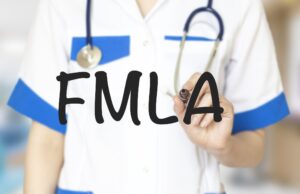
Primarily, this law permits employees to avail leave for family caregiving or for recuperating from a significant ailment or injury. However, the law’s provisions don’t apply universally across all employers or employees. Here’s a deeper look into FMLA and its impact on you as an employee. Contact PLBH at (800) 435-7542 if you require help from an attorney.
The Coverage of FMLA Isn’t Universal
An employer’s obligation to adhere to the FMLA stipulations arises only if they have maintained a minimum of 50 employees for at least 20 weeks in the current or preceding year. Thus, smaller businesses are not mandated to observe this law, although they might offer comparable leave benefits under a state law.
Your eligibility for FMLA protection, even if your employer is subject to the law, isn’t guaranteed. To qualify, you must have been an employee for at least a year, and within that period, you should have worked a minimum of 1,250 hours.
The Scope and Duration of FMLA Leave
FMLA leave isn’t available indiscriminately but is reserved for specific circumstances. These include your own serious health condition, caring for an ailing or injured family member, or spending time with a new child. FMLA also covers some forms of military family leave, such as addressing practicalities linked to a family member’s call to active duty.
Under FMLA, you can take off up to 12 weeks in a calendar year, or up to 26 weeks to care for a family member who suffered an injury or illness while on active military duty. It’s important to note that this leave entitlement isn’t renewable and is limited to one usage per family member or injury. FMLA leave is typically unpaid, although employees can utilize their accrued sick or paid leave to cover this period.
FMLA leave need not be consumed in one continuous period; it can be used intermittently, over a few hours or days, or for longer durations. This flexibility is particularly useful when caring for a family member undergoing medical treatment or in other circumstances where taking the entire 12 weeks of leave at once is unnecessary.
Obligations of Employees under FMLA
Employees are expected to notify their employers in advance about their intention to take leave under FMLA, wherever possible. A 30-day notice is obligatory if the need for leave is foreseeable (like a scheduled surgery), but in cases where the need arises suddenly, you’re required to give as much notice as is reasonably possible.
Alongside providing notice, you might also need to present medical certification at your employer’s request. This documentation would typically be from the medical facility or practitioner providing treatment to you or your family member. When asked for a certification, you’ll usually have 15 days to submit it.
Your Rights under FMLA
While on FMLA leave, you’re entitled to remain on your employer’s health insurance, although you may be required to contribute towards the premium. On returning from leave, your employer must restore you to the same or an equivalent position, barring a few exceptions.
If you suspect that your rights under FMLA have been infringed by your employer, reach out to PLBH today at (800) 435-7542. Our team of seasoned and empathetic employment law attorneys is committed to safeguarding your legal rights.
